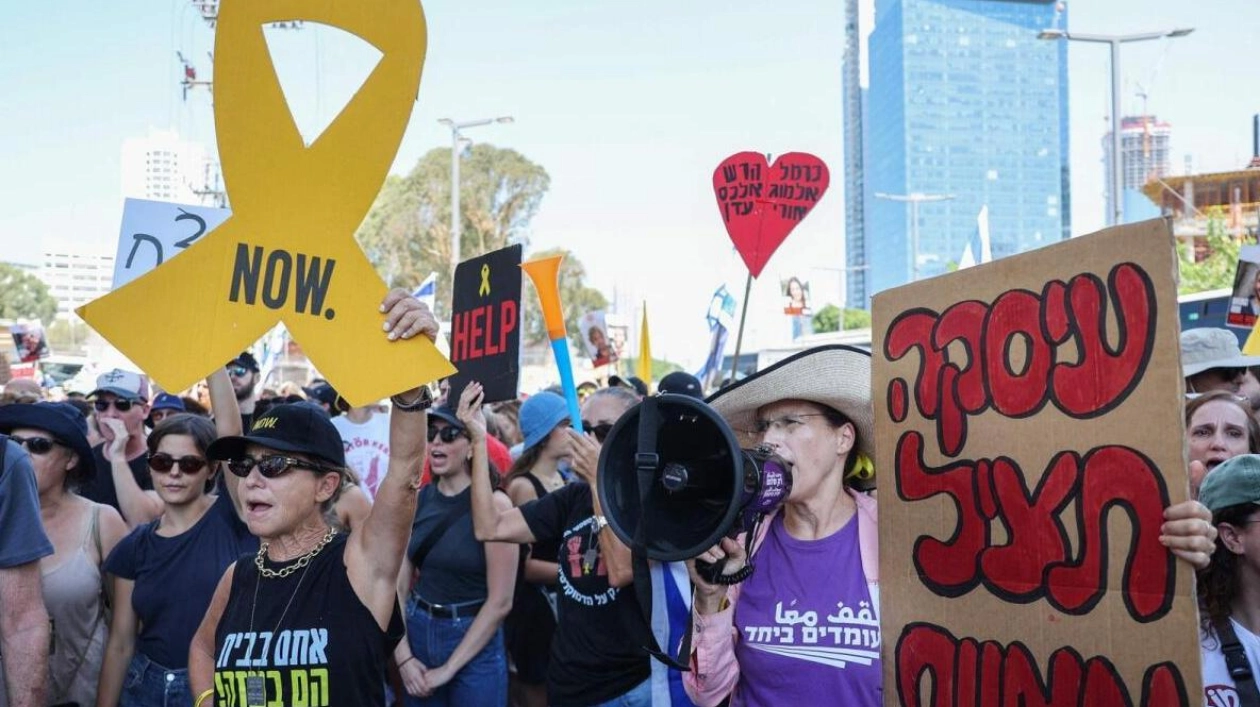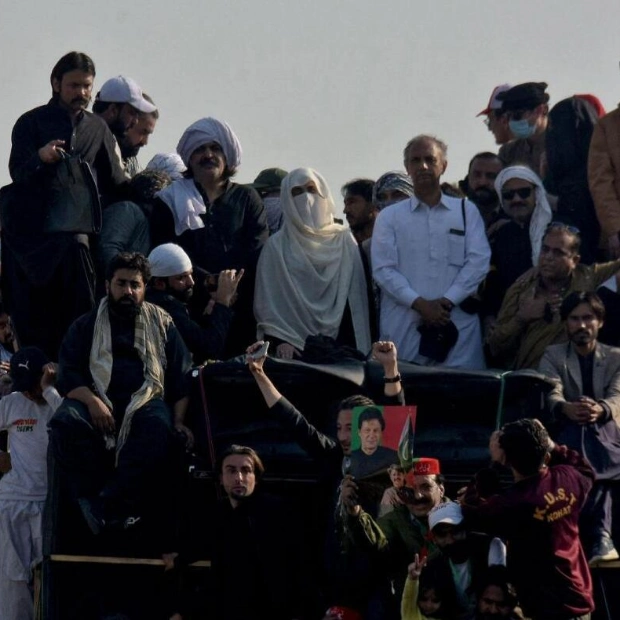Israeli protesters continued their demonstrations for the second consecutive day on Monday, while the largest trade union initiated a general strike to urge the government to negotiate the release of hostages still held by Hamas. This followed the discovery of six more deceased captives in Gaza. The strike caused significant disruptions in transportation and medical services across various Israeli regions, with numerous shops and businesses shutting down after the Histadrut union, representing hundreds of thousands of workers, called for a nationwide stoppage.
The finding of the six hostages, who were reportedly shot between 48-72 hours prior to being located by Israeli forces, according to the health ministry, sparked widespread sorrow and anger in Israel. This led to over half a million people taking to the streets in Jerusalem and Tel Aviv on Sunday. The protesters are calling on Prime Minister Benjamin Netanyahu to negotiate a ceasefire with Hamas to secure the release of the remaining hostages. On Monday, thousands assembled in Tel Aviv, waving Israeli flags and holding images of the 101 remaining hostages.
Professor Yehuda Ullmann, the head of surgery at Rambam Hospital in Haifa, expressed that the strike conflicted with the medical profession's commitment to patient care. However, he emphasized the dire situation due to the hostage crisis, stating, "We can't stand aside and that's why we came into a strike." Following a directive from Finance Minister Bezalel Smotrich, Israel's Labour Court ordered the end of the general strike at 2:30 pm (1130 GMT), citing its lack of economic foundation and strong political undertones. Histadrut accepted the court's ruling.
Histadrut chairman Arnon Bar-David instructed everyone to resume work at 2:30 pm, a day after he characterized the strike as "a cry for the return of the hostages." Some operations at Ben Gurion Airport were halted in the morning, though incoming flights continued, and public transportation in many areas was either canceled or partially operational. Workers at Israel's major commercial port in Haifa and some municipalities also participated in the strike.
Hospitals operated at reduced capacity, banks were closed, but many private sector businesses remained open. The strike received support from several employer groups, including manufacturers and the high-tech sector, leading to widespread service disruptions. The strike and street protests are a culmination of months of demonstrations by families of the hostages, highlighting the deep rifts in Israeli society over Netanyahu's strategy for achieving a ceasefire.
Despite pressure from his defense minister, senior generals, and intelligence officials, Netanyahu has maintained Israeli troop presence in key areas of the Gaza Strip post-ceasefire. Hamas has rejected any Israeli presence, and despite efforts by Egyptian and Qatari diplomats and frequent visits by senior US officials urging a deal, there has been no indication of progress in negotiations to end the conflict and bring the hostages home.






